Live in jobs in New Zealand are an incredible way to spend your working holiday. We have spent a total of two years in Aotearoa on the Working Holiday Visa. By doing these kind of jobs have used our visa to live and work in some stunning places.
How many people can say they have lived in the Marlborough Sounds, one of the world’s most famous wine regions? Or better perhaps, who can say they’ve lived and worked next to Fox Glacier, a world-famous glacier that is sadly melting at an alarming rate.
We have!
And we want to share how to find amazing jobs for your working holiday in New Zealand.
This Live-In Job guide will give you a comprehensive description of the following:
- What the New Zealand working holiday visa is
- Understanding Live-in jobs
- Benefits of a live in job
- Popular/ common live in job opportunities
- How to find a live in job
- Financial considerations- boost your savings
Getting Started with the Working Holiday Visa
The New Zealand Working Holiday Visa program offers an exciting opportunity for eligible individuals to seek temporary work on their travels and explore the stunning landscapes of Aotearoa.
Eligibility
To be eligible for this visa, applicants must meet certain criteria:
Age Requirement: Generally, you must be aged between 18-30. This varies by country, for example a UK Citizen may apply for a New Zealand Working Holiday Visa up until the age of 35 as of 2022.
Nationality: The working holiday scheme is open to citizens of specific countries with which New Zealand has reciprocal agreements. Check if your nationality is eligible here:
Health & Good Character: You must be in good health and be able to pass a medical check if requested. Generally, for your first year you won’t need as many supporting documents, however for 12+ months in New Zealand then these may be required. You may need character references and possibly police checks.
Financial Sufficiency: You must be able to prove that you have sufficient funds to support yourself. This may include proof of a return ticket or enough saved to be able to purchase one. The rough number is $350 NZD per month you plan to stay.
Insurance: travel insurance is always a good idea, whether it is mandatory or not. New Zealand requires you to have comprehensive travel insurance for your working holiday.
Duration of Stay: The working holiday visa allows you to stay in New Zealand for a period of 12 months. Depending on what country you are from, you may be able to extend this. For example, as British passport holders we are now able to extend for up to 36 months- this is subject to passing a medical check, a police check, and proving financial sufficiency. Check the criteria here for your country.
Intention to Work and Travel: Applicants should genuinely intend to work and travel in New Zealand, embracing the cultural and social experiences the country has to offer.
While we’ve done our best to cover the eligibility above. But, make sure to carefully review the official immigration guidelines and documentation requirements as they may be subject to change.
Application Process
The application process for the New Zealand Working Holiday Visa is designed to be straightforward, and prospective travellers are encouraged to follow these general steps:
Check Eligibility: Before starting the application, ensure that you meet the eligibility criteria for the New Zealand Working Holiday Visa. Confirm your age, nationality, health status, and financial sufficiency according to the requirements outlined by Immigration New Zealand.
Create an Immigration New Zealand Account: Begin by creating an account on the official Immigration New Zealand website. This account will serve as a platform to manage your application and receive updates on its status.
Complete the Online Application Form: Fill out the online application form, providing accurate and up-to-date information. This includes personal details, travel plans, and information about your health and character.
Upload Supporting Documents: Attach the required supporting documents, such as a valid passport, passport-sized photographs, proof of funds, return ticket or sufficient funds to purchase one, and any other documents specified by Immigration New Zealand.
Pay the Application Fee: Pay the relevant application fee using the accepted payment methods outlined on the immigration website. This cost is $455 in 2024.
Submit the Application: Once all sections of the application form are completed, and the necessary documents are uploaded, submit the application through the online platform.
Wait for Processing: After submission, your application will undergo processing by Immigration New Zealand. This may take several weeks, so it’s advisable to apply well in advance of your intended travel date.
Receive Visa Approval: If your application is successful, you will receive a notification through the online platform. The approval will include details of your New Zealand Working Holiday Visa, such as the start and end dates and any conditions attached.
Plan Travel Arrangements: Once the visa is approved, you can start planning your travel to New Zealand. Ensure that you have your visa, passport, insurance, and other necessary documents in order.
Arrival in New Zealand: Upon arrival in New Zealand, undergo the necessary immigration checks, and be prepared to provide evidence of your ability to financially support yourself during your stay.
Check the official Immigration New Zealand website regularly for any updates or changes to your application.
Follow these steps for a smooth application process. Making sure you are organised with all your supporting documents will increase the likelihood of a successful outcome. If the immigration office has doubts, then they will question your application, delaying the process.
Conditions of the Visa
While the New Zealand Working Holiday Visa offers an exciting opportunity for individuals to work and explore the country, it comes with specific conditions that you, the visa holder, must adhere to.
These are very similar to the eligibility section and requirements however, it’s worth noting the differences.
These conditions are in place to ensure a positive and mutually beneficial experience for both the traveller and the host country. Some key conditions of the New Zealand Working Holiday Visa include:
Work Limitations: The primary purpose of the working holiday visa is to facilitate travel and cultural exchange, and employment is meant to supplement the traveller’s experience rather than serve as the sole focus. Visa holders can only accept temporary contracts, and depending on your country of origin you may only be able to work for the same employer for a certain amount of time. Check your limitations on the official Immigration website here.
Duration of Stay: The New Zealand Working Holiday Visa allows individuals to stay in the country for a predetermined period, usually up to 12 months. Some countries may have variations in the allowed duration, so it’s crucial to check the specific terms for your nationality.
No Extensions: Unless you have the ability to apply for a second or third year for the working holiday visa, there are no extensions. A working holiday visa is a one use visa, so once the visa expires you are expected to leave the country or apply for a different type of visa, like a Work Visa for example, if you wish to continue your stay.
Medical and Travel Insurance: Visa holders are required to have comprehensive medical and travel insurance for the entire duration of their stay in New Zealand. This ensures they are covered for any unexpected medical expenses or emergencies.
No Dependents: The working holiday visa is granted for individual travellers. It does not allow for dependents, such as spouses or children, to accompany the visa holder.
Compliance with New Zealand Laws: Visa holders must comply with all New Zealand laws and regulations. Any violation of the country’s legal requirements may result in visa cancellation and potential deportation. Which is fair enough!
Return Ticket or Sufficient Funds: Visa applicants need to demonstrate that they have a return ticket or sufficient funds to purchase one. This requirement ensures that individuals can support themselves financially throughout their stay and have the means to leave the country when their visa expires.
Make sure that you are aware of the conditions of your visa before you arrive, so you don’t accidentally break the terms and conditions. Once your visa has been granted, no one really checks up on you, but it’s always good to ensure you’re working and travelling within the guidelines. Failure to adhere to these conditions may have consequences, including visa cancellation and potential difficulties in future travel to New Zealand, which no one wants!
Understanding Live-in Jobs in New Zealand
Your visa has been accepted, you’ve landed in New Zealand and have spent some time sightseeing. It’s now time to find a job so you can make some money to continue your travels.
Understanding Live-In Jobs in New Zealand
Live-in jobs involve accommodation provided by the employer. (Usually on site or close to the place of work) The price of the rent is usually deducted from your wages.
This lifestyle usually creates a close-knit community between the members of staff, as you live and work together. The live in jobs are also a great way to immerse yourself with the kiwi way of life in that particular area.
Definition of Live-In Jobs: Live-in jobs, as the name suggests, go beyond the traditional work arrangement by offering not just employment but also on-site accommodation. These positions often foster a sense of community among workers, providing an immersive experience that extends beyond the workplace.
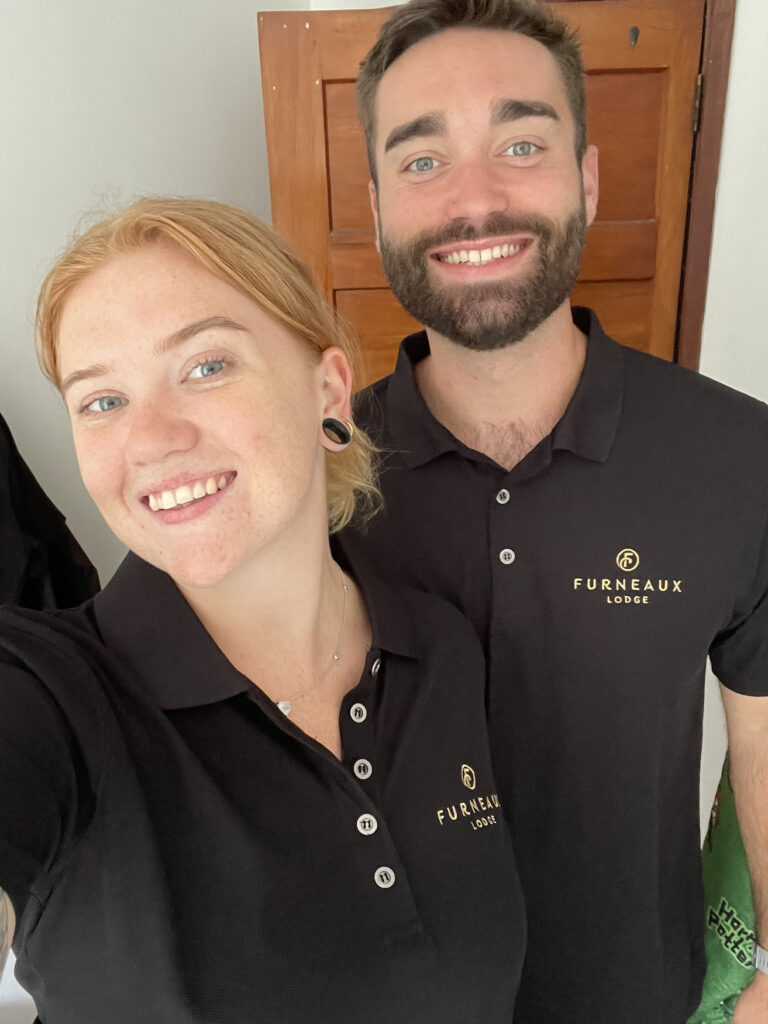
Benefits of Live-In Jobs for Travellers in New Zealand
Embarking on a working holiday with a live-in job in New Zealand offers a range of unique benefits that traditional employment fail to offer.
Here are some advantages that make live-in jobs such an attractive option for travellers:
Accommodation Included:
- Financial Savings: Live-in jobs often provide accommodation as part of the employment package, significantly reducing the traveler’s living expenses. This allows individuals to allocate more of their budget to exploration and leisure activities.
- Reduced Commute: By living where you work, your commute time is dramatically reduced. From personal experience, our largest commute to work has been a 2-minute walk (literally).
- No Private Rental: By working and travelling, you have probably not come to New Zealand to deal with landlords, flat viewings and signing tenancy agreements. This process is far easier for live in jobs due to the duality of the relationship: the employers want you there to complete the job and you want to be there to get paid. So they do all the landlord stuff and all you do is come to work then leave when you end you’re employment.
Being Able To Stay In One Place
- As a traveller on the road you don’t tend to spend too much time in one place but at a live in job you actually get the opportunity to settle in one space for a bit.
- You can make the space yours, unpack and just treat it like a bedroom at home which is always a nice feeling.
Community and Friends
- Built-In Social Network: Live-in job environments create a sense of community among workers who share accommodations. This built-in social network provides a support system, facilitates friendships, and eases the potential loneliness that can come with solo travel. Everyone is here for the same reason!
Explore a New Area
- Due to the remote nature of these jobs, they’re usually located in some extraordinary places that may be off the beaten path for other travellers. This is great for you, because on your days off you will be able to explore and find some unique adventures for your travel stories. We found a few amazing hidden gem hikes while we worked at live in jobs in New Zealand.
Great Work Life Balance
- No commuting or cooking: Even if you work 50 hours a week, with no commuting and usually no cooking, you’ll manage to balance work and life well. This is great for when you want to explore! Our days off were spent hiking, swimming, and sightseeing.
Skill Development:
- Diverse Work Experiences: Live-in jobs often involve diverse responsibilities, allowing you to gain practical skills in various fields. This can include customer service, farm work, hospitality, or even environmental conservation, contributing to personal and professional growth. For us, we have progressed professionally from a managerial perspective within the hospitality industry.
Extended Stay Opportunities:
- Extended Exploration: Rather than just spending your savings in New Zealand, earn as you go. The significant opportunity for financial savings from live in accommodation can extend the duration of your stay in New Zealand. We stressed about money when we first arrived as everything is expensive, but once we secured work that stress was gone.
Local Networking:
- Connections with Locals: Living in close proximity to locals provides ample opportunities to build meaningful connections. These connections may lead to invitations to local events, gatherings, or cultural experiences, enhancing the overall travel experience. New Zealand is extremely small so you never know what connections you might make. One of our jobs came from a friend we made while we were at Furneaux Lodge in 2023; he knew a guy who owned a few cool bars, and our CVS found their way to his desk. Bingo.
Memorable Stories and Experiences:
- Unique Memories: The distinctive nature of live-in jobs often leads to memorable and sometimes unexpected experiences. We have swum and kayaked in bioluminescence in the Marlborough Sounds, drank wine with some professional footballers, and jumped off the back of one of the biggest Sounds passenger boats. These are all random memories and stories that make our travel journey unique to us.

For travellers seeking a more immersive, cost-effective, and socially connected experience in New Zealand. Opting for a live-in job is such a rewarding choice that adds an unusual layer to your travel experience.
Go make some memories and stack that cash!
Popular Live-in Job Opportunities in New Zealand
Farmstays and Agricultural Work:
Definition: Farmstay jobs involve working on farms or rural properties, contributing to daily operations such as animal care, crop cultivation, or general farm maintenance.
Experience: Embrace the rural lifestyle, learn about farming practices, and enjoy the tranquility of New Zealand’s countryside.
Hostel and Hotel Positions:
Definition: Many hostels and hotels in New Zealand offer live-in positions for travellers. Roles may include reception work, housekeeping, or even managing social events for guests.
Experience: Immerse yourself in the vibrant atmosphere of New Zealand’s hospitality industry, meet fellow travellers, and gain valuable customer service experience.
Lodges & Restaurants:
Definition: New Zealand is home to many restaurants and lodges located in remote locations that are difficult to commute to. The Marlborough & Milford Sounds, Franz Josef & Fox Glacier and the various ski lodges dotted around are all great examples of this.
Experience: Similar to above, the hospitality industry is vibrant in New Zealand with lots of hours on offer. You will likely meet with likeminded travellers and share stories!
Fruit Picking
Definition: Fruit picking work can be kiwi fruit, grapes, apples, you name it! Usually very seasonal, most employers will provide accommodation for you due to the location.
Experience: Expect long days of hard graft out in the sun, however the hours are good and it’s a very easy job to get in New Zealand.
House Sitting and Caretaking:
Definition: House sitting or caretaking jobs involve looking after private properties, often in rural or scenic locations, ensuring security and basic maintenance. This is usually unpaid, but if you are travelling around then it can be great to reduce your accommodation costs.
Experience: Enjoy the tranquility of living in beautiful homes, experience local communities, and take on responsibilities that contribute to the well-being of the property. And there will most likely be pets to look after!
Tourism and Outdoor Adventure Roles:
Description: Work in outdoor adventure centres, guiding tours or assisting with recreational activities, often with on-site living arrangements.
Experience: Combine work with adventure, showcasing New Zealand’s stunning landscapes to tourists while enjoying thrilling outdoor activities on your days off.
Au Pair and Nanny Positions:
Description: Provide childcare services within a host family’s home in exchange for accommodation and sometimes meals.
Experience: Form close bonds with a Kiwi family, experience daily life, and gain valuable cultural insights through childcare responsibilities during your working holiday.

Understanding the variety of live-in job options available in New Zealand opens up a world of possibilities for travellers seeking a more immersive and culturally rich experience. Whether you find yourself tending to farm animals, welcoming guests in a hostel, or participating in environmental conservation, live-in jobs provide not just employment but a chance to experience life in an unconventional way.
That’s why you’re away from home, right?
Exploring Regions for Live-in Jobs
Where is the best region to find a live in job?
Trying to find a specific stat or number to validate a cut and dry answer to this question is very difficult. Most employment research resources do not mention live in jobs specifically. Fair enough.
Despite this, we can confidently say (having looked for jobs all over New Zealand) that all regions offer jobs that provide accommodation. On both islands.
This also depends on what industry you want to work in. For example, fruit picking jobs can be found in high density in Central Otago, Hawke’s Bay and the Bay of Plenty. These usually offer accommodation packages too.
Navigating the Job Search Process
How to get a live in job in New Zealand
If you have ever had to conduct a job search before, you are in luck. Navigating the job search process in New Zealand is very similar to other countries.
The difference here is that you want to look in the right places to achieve the goal of securing a live in job role.
The Best Job Search Websites for Live-in Jobs in New Zealand
The most useful resource to find a live-in job in New Zealand is Backpackers Job Board.
Here you can filter on “accommodation and paid,” which searches specifically for jobs that offer accommodation and wages.

All of our live-in jobs in New Zealand have been sourced through this website, so we can recommend browsing for jobs. Having the filter for “Accommodation & Paid” is extremely handy.
Seek is a well-designed platform wherein you can search for jobs by specific keywords, categories, and location. You can also receive daily job emails/ notifications and post your CV online. If you set up an account with Seek (which is free), you can upload your CV and input your experience so employers can see this straight away.
There is also the opportunity to “quick apply”, which sends your CV and a cover letter from SEEK to the employer. The employer will then contact you, either directly or via SEEK.

A point to remember with SEEK is that this is not just used by backpackers/ travellers; SEEK is aimed at everyone so you may not find exactly what you are looking for. If an employer wants backpackers in a role, then they may be more inclined to post a job listing on the Backpackers job board.
We downloaded the SEEK app to our phones which makes things much more convenient.
Find their website here: Seek.co.nz
Facebook is a resource for pretty much anything these days. Joining Facebook groups is a great idea for travel in general.
For finding live in work, we recommend joining our group named “Live-in Jobs New Zealand” for information about and finding live in job opportunities. New Zealand is such a small place, and we have found that everyone knows everyone.
We set this group up as we realised that there was no such group on Facebook for this niche, and we really could have used with something less formal than the websites mentioned above.
Other Websites / Resources
Other websites & resources for finding jobs that might be useful but may not be the best for travellers are:
Trade Me Jobs
You can find their website here: TradeMe.co.nz
Careers.govt.nz
You can find their website here: Careers.govt.nz
Recruitment Agencies
Our go to recruitment agency is Madison Recruitment.
(We used and worked for Madison Recruitment for a while when we were between jobs).
Preparing for Live-in Work
We have done our fair share of live in jobs in New Zealand. We approach and prepare ourselves so much more thoroughly these days compared to our first life in job.
This section is a list and explanation of how to best prepare for a live in job. Our experience has been in the hospitality industry, so the information below is drawing from experience in that industry, rather than agriculture for example.
Essential Documents & Certificates
Check with your employer to see if you need hard copies of your documents (visa, photocopy of passport, contract of employment etc). The last thing you want is to get there and not to have them!
If you need any specific certificates to show your qualifications, always bring them too as your employer will likely want to see them. This will be specific to each industry. For example, we have our Duty Managers Certificates (allowing us to manage the sale and supply of alcohol in licensed premises) and each employer needs to have a copy of these. Your employer will advertise if they need specific qualifications for the job role.
Every employer will ask you for your IRD number and bank account so they can pay you, so make sure those are handy too.
What to Pack
If you’re backpacking, we assume that most of your personal belongings will be in your bag with you anyway. However, it’s worth going shopping to pack a few more bits and bobs if you’re going to go and spend an unknown amount of time in a remote location. (Especially if you don’t have a car/van)
Aside from the usual clothes, toiletries and other personal items, here’s our favourite items to take with us:
- Snacks
- Protein shakes/ powder (particularly if you are vegetarian/ vegan)
- Excess medical supplies e.g. inhalers, epipen, paracetamol or any prescribed medication.
- Exercise bands
- A card game
- A bottle of whiskey, gin or spirit of your choice
This list might look weird when it’s written out like it is but trust us when we say it all has its place.
If you have any suggestions or essential items that you think should be on here, let us know!
What to Expect in a Live in Job Environment
Lots of people
From our experience, you will meet lots of people. People will leave, people will join, but the most consistent aspect is that everyone is friendly.

Transportation- Getting To The Job
This will be individual to each job opportunity, given the diverse landscape of New Zealand.
Most jobs live in jobs have accommodation on site/walking distance away. If go somewhere remote this will definitely be the case.
It’s quite often getting to the job in the first place that takes the transport planning.
When we lived in the Marlborough Sounds, we needed to take a 2-hour boat journey to get there, plus arranging transport from Christchurch to the Marlborough region. Whereas when we worked in Fox Glacier on the West Coast, we took the Intercity Bus and just hopped off. There are plenty of transport options in New Zealand- click here to read our article on the best ways to get around New Zealand.
The best thing you can do if you are unsure about how to get there, is to ask whoever employed you for suggestions, they will usually help.
Prepare to be Emotionally Tested at Times
Don’t let this heading put you off- what doesn’t kill you makes you stronger, right?
3 reasons you might be emotionally tested at a live in job:
- People You Don’t Like
It’s a fact of life that not everyone gets on, you may live and work with someone that you don’t like and that is fine. Living and working with your coworkers that you don’t like can be tough and slightly draining, but we’re all adults here (as you literally must be 18+ to apply for the visa), so be professional and courteous about it and move on.
2. Possible Loneliness
This is more aimed at the single people reading this, but a pattern that we’ve spotted throughout our time at live in jobs in New Zealand (although we don’t have stats and evidence, so please don’t @ us) is that single people don’t last as long as couples in remote locations.
This is a bit of a test as feeling isolated in a strange place in a strange new country isn’t nice. It’s so important to find someone you like and go hang out with them. Remember that everyone is in the same boat at these gigs.
3. Cabin Fever
Sometimes it isn’t possible to just go and grab a coffee or pop to the shops in these jobs. This is something that you sign up for, of course, but it can still get tough. Seeing the same people in the same environment for weeks or months on end can get tough.
We have found that travelling as a couple and doing live in jobs has been beneficial as we have always had someone to hang out with, someone to chat to, and someone to explore with. But in most of our live in jobs, we’ve been in the minority.
Try to Socialise - Even if you don’t feel like it
This tip is something that we have to say to ourselves a lot.
When there’s a games night or some sort of social gathering, make sure you go. In these living situations, the people are where the memories are. We don’t really think about the shit hours we’ve had to work or the mundane nights behind the bar, but we do remember when we bundled eight of us into our bedroom and had a party (this happened too many times), or when a big group of us played frisbee on the lawn with some of the lodge kids.
Socialising and making friends when you first move in is important establish friendships.
But sometimes, you just can’t be bothered to socialise. And that’s fine!
Pack plenty of Snacks
Did we mention that packing snacks is important?
Be Prepared for Suboptimal Accommodation
Your accommodation. Always a great topic of conversation amongst travellers!
Our best piece of advice here would be to not expect much. You’re going to live and work at a place that others have lived and worked at for years before you, and there will be plenty more people years after you too.
Your rent should be low compared to the ‘real world’, and therefore so will the standards of the house.
Questions to ask before you move in:
- Is there Wifi?
- Are power and water included in the rent, or will they be charged separate?
- Are bedding and linen provided?
- Is there any mould?
- How many housemates will you be living with?
We are speaking from experience!
But as we’ve said, it’s not going to be a luxurious apartment that you’d be able to rent in a city or at home so don’t expect too much.
Check out our Facebook group where we encourage discussion around the living situation at different live in jobs: Live-in Jobs New Zealand.
Stand up for yourself (work hours, food etc)
Revenue – Costs = Profit, right?
Businesses want to make money. They’re happy to cut costs if they can. It’s the nature of the game.
But you’re also here to make money, so if you’re not getting the hours that were promised in your interview or are in your contract, then go to your manager and ask for more. Likewise, if you’re not being fed properly and you are being charged for food, speak up. It can feel like an awkward conversation to have but at the end of the day, it is essential. And I get really grumpy when I’m not fed!
Top tip: If your interviewer states a specific number of hours that you’ll be able to achieve each week, ask them to put it in your contract. We did this in one of our live in jobs and some weeks we’d get significantly less than expected, but because we had it written in our contract, the company did their best to get us there which we greatly appreciated. Naturally, some weeks there isn’t much going on (especially in hospitality), but if it’s a regular occurence then it’s not unreasonable to ask.
Balancing Work and Leisure
Once you have secured your work in an exciting new place, you’ve met your co-workers and settled into your new accommodation, it’s time to think about how to manage the work life balance.
We have always found (always), that live in jobs are great for work-life balance. Without comprimising on wages.
In our experience, we have found that two time consuming aspects of life are usually removed when you opt to work a live in job: commuting and cooking.
Usually your accommodation will be extremely close to your place of work- whether that is upstairs, across the road or next door. This means that your commute time is small. We have genuinely been in the situation where we can clock out at 3pm and be in swimwear ready to relax in the sea by ten past three. Naturally, this may differ for different industries, but we can vouch for the hospitality industry that this is usually the case.
Particularly for restaurants, they provide you with at least one meal a day. More meals are provided at the more remote live in jobs. We have worked in places that do not have personal kitchens, therefore meals are provided (this is usually a cost worked into your rent). The time saved on not having to think about food shopping, preparing and cooking the meal as well as then washing up afterwards in phenomenal. We plough our spare time into tinkering with our website and exploring the local area.
These aspects both contribute to the ability to balance work and leisure very well in a live in job in New Zealand.
Days off can be spent exploring the local area without worrying about food shopping (although agree with your employer that you do receive food on your days off too). If you have a shift that starts at 3pm and you live next door, then there nothing stopping you with doing a small hike, going for a swim/ paddle-board, or relaxing with a coffee while you look over the stunning views of the remote place that you now live in. These are all examples of things we have done before work- beats getting up at 7am and going to the office, for sure!
The other way to maximise your time off is to manage your roster (not rota over here for anyone reading this in the UK).
Check out these articles that are all based on things we have done in our spare time at live in jobs.
Financial Considerations
From a purely financial perspective, a live in job works wonders.
In a three month period, we managed to save 75% of our wages over a three month period at a live in job. We saved $14,000 (NZD)in two and a half months. Our rent was taken out of our wages in the same way that tax was, so we didn’t really notice it and there were no shops within a 50 minute boat ride.
This is very doable for everyone if your put your mind to it. You are in such a good environment to save money. What are you going to spend your money on if you’re living in an isolated/ remote part of the country?
You don’t have to be an accountant or a financial advisor to figure it out.
Budgeting
You will have set up a New Zealand bank account to be able to get paid here. You won’t have transferred all of your usual Direct Debts from your home country to this new account, so your costs will be minimal. Make sure you set up an instant access savings account with it, we found this to be really helpful to separate your money once you’ve been paid.
Budgeting your wages at a live in jobs is very simple. I love using a spreadsheet, but it’s certainly not necessary.
Write down all of your expenses coming out of your New Zealand bank account.
As a traveller, this could be any of the following:
- A phone bill
- Car insurance
- A gym membership
Write down how much you expect to get paid. Remember that most places in New Zealand pay you either weekly or fortnightly, which we found to be great!
For us, this was:
- A phone bill- which, ironically, we couldn’t use at times due to the location.
- A gym membership- we chose the cheapest one available with gyms all over the country: City Fitness.
This added up to $90. So, the amount saved was crazy!
Make sure you’ve got enough money to cover your expenses, leave a small amount for fun money (ours was a few beers at the bar after work), and swipe the rest into your savings account. Job done.
Sooner or later you’ll be stacking cash and have the funds to go any continue your travels around New Zealand.
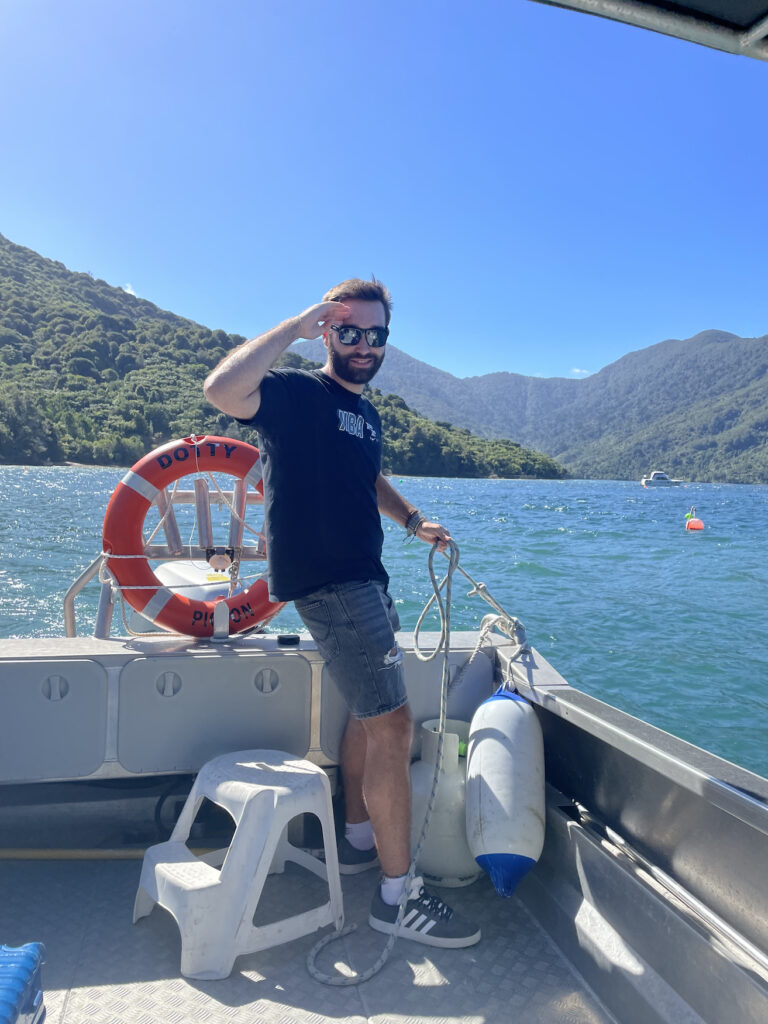
The biggest benefits of live in jobs are the money you can save, the friends you make and the places you can visit that you wouldn’t probably wouldn’t when just backpacking.
We hope this article provides you with all the information you need for finding an accommodation provided role in NZ!
Safe Travels
Jess & Ben

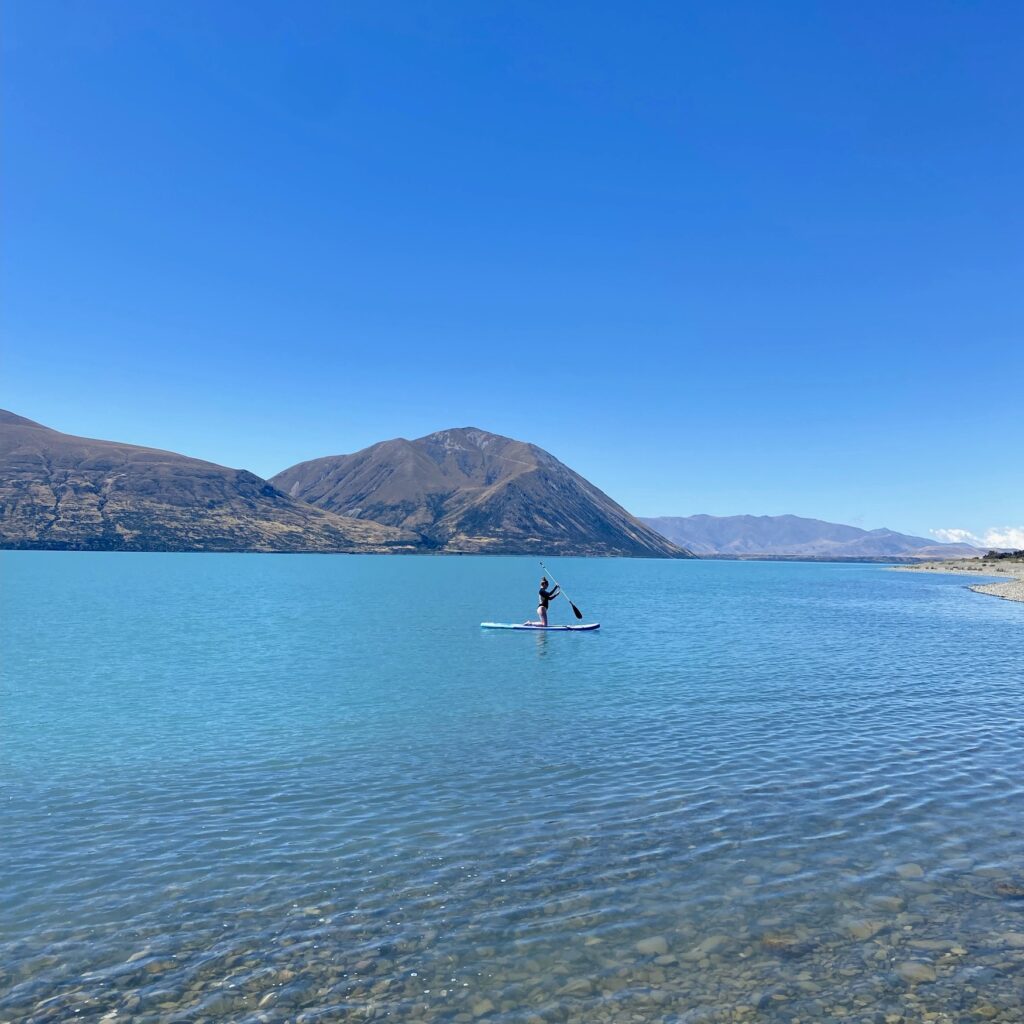



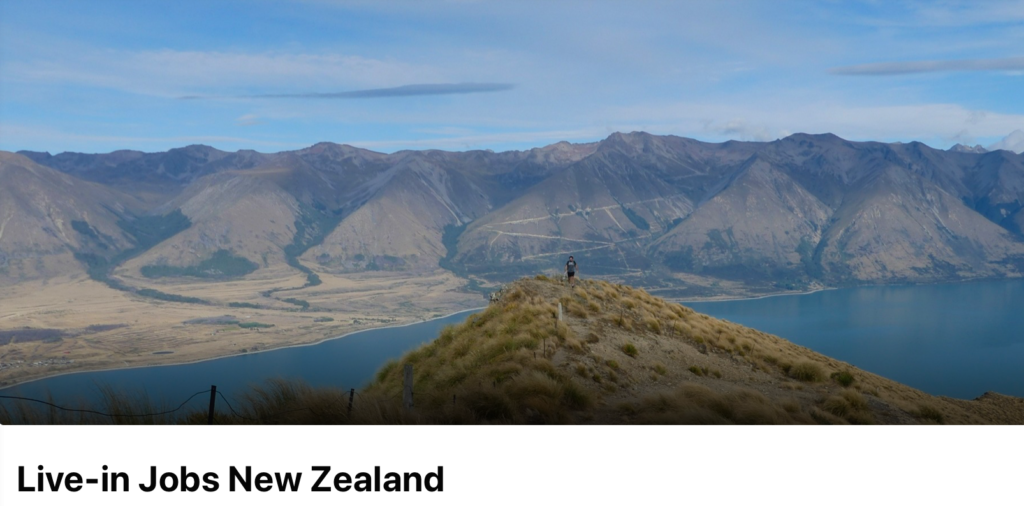

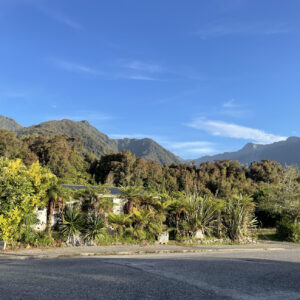
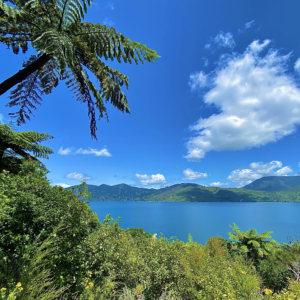
Pingback: Interview Tips for a Live-in Job in New Zealand - Jess & Ben Travel
Heya fantastic blog! Does running a blog similar to
this require a massive amount work? I have absolutely no expertise in computer programming but I was hoping to start my own blog in the near future.
Anyhow, if you have any recommendations or techniques for
new blog owners please share. I understand this is off topic however I simply needed to ask.
Thanks a lot!
Thanks! It is a lot of work but we love it and it does take a lot of time to understand and set up, we’ve been slowly working on this blog for just over a year!
Check out YouTube, it’s absolutely the best way to learn new skills! Tyler Moore is great for beginners. You can never do too much research! We hope this helps – Jess & Ben
What’s up, I read your blogs on a regular basis. Your
story-telling style is witty, keep up the good work!
Hey! Thank you, we appreciate it, glad you like it!
Pingback: February 2024 Travel Newsletter - Jess & Ben Travel